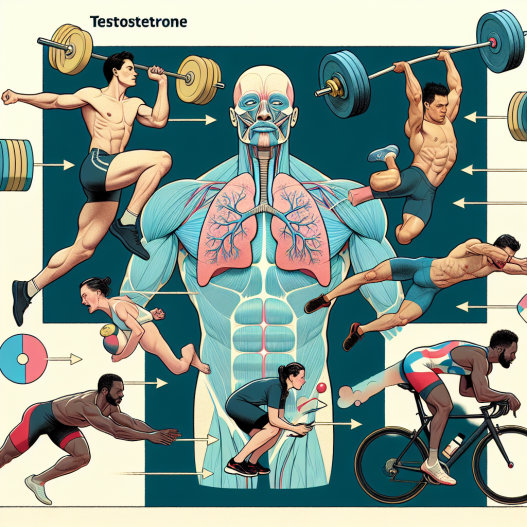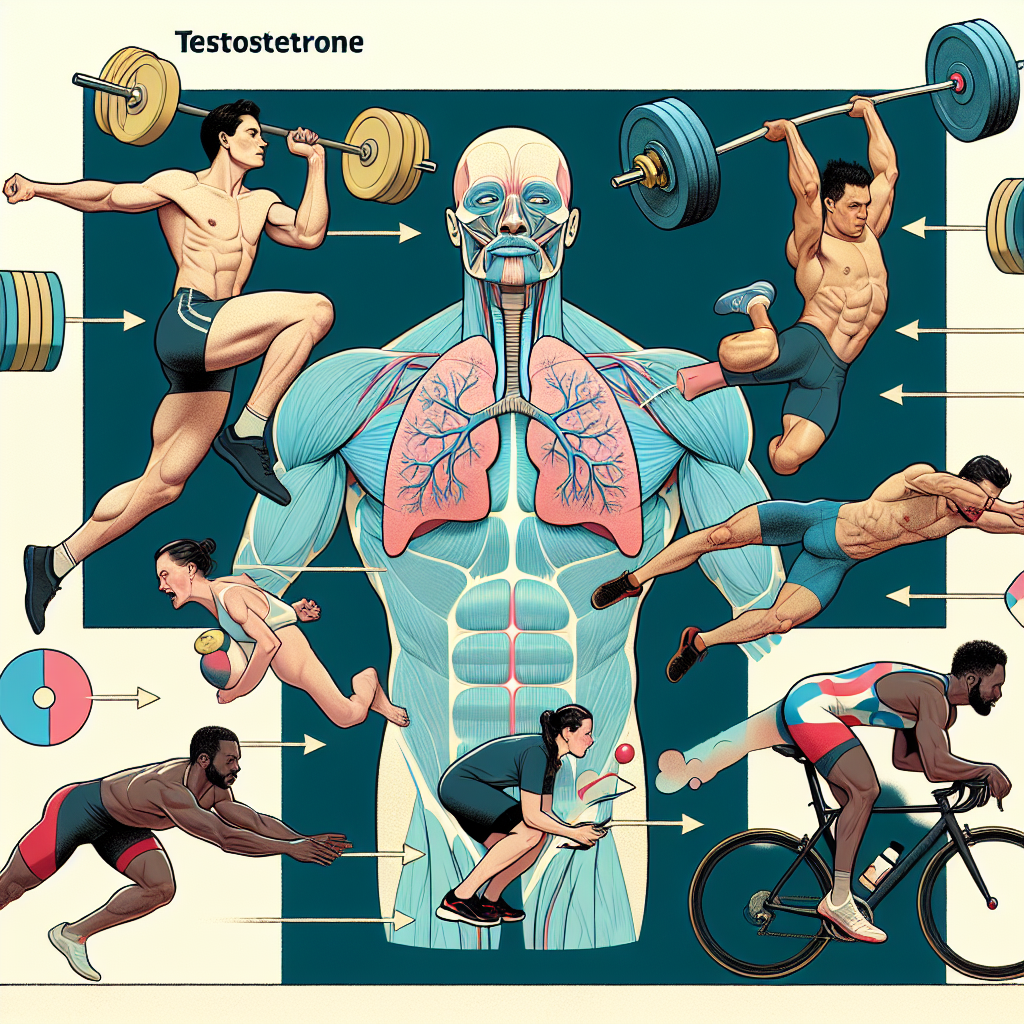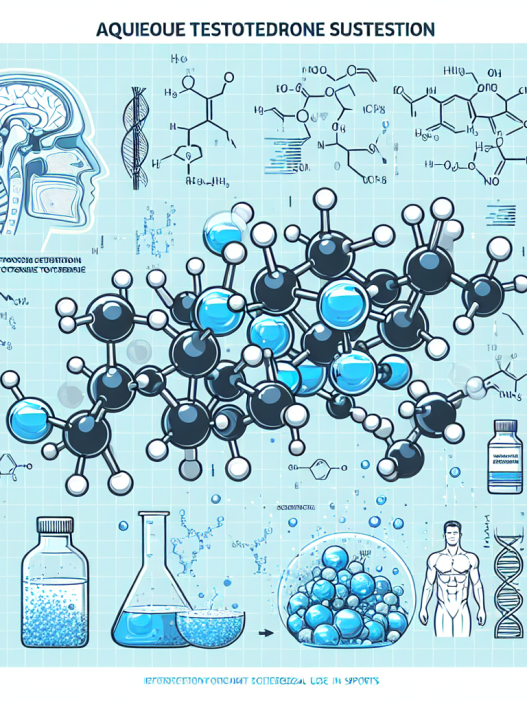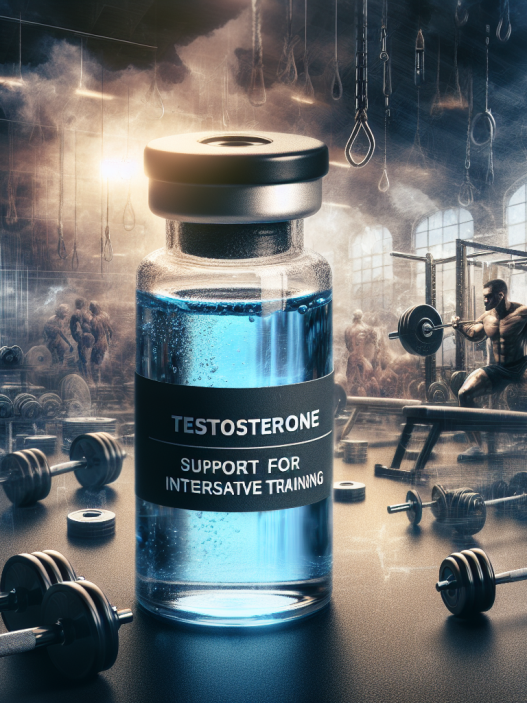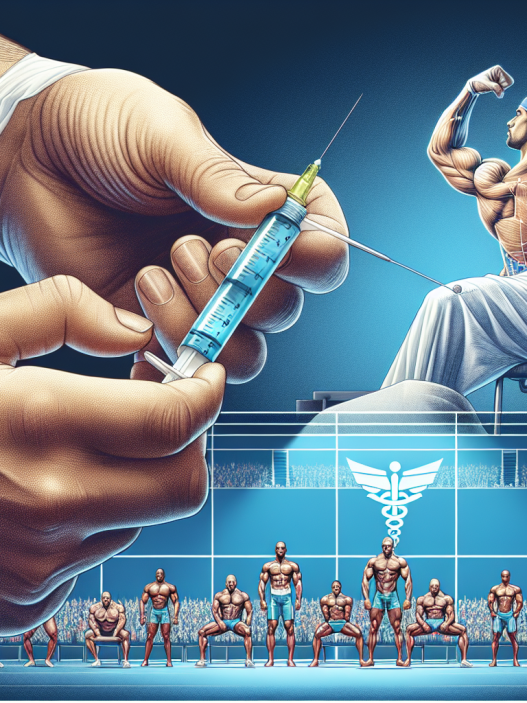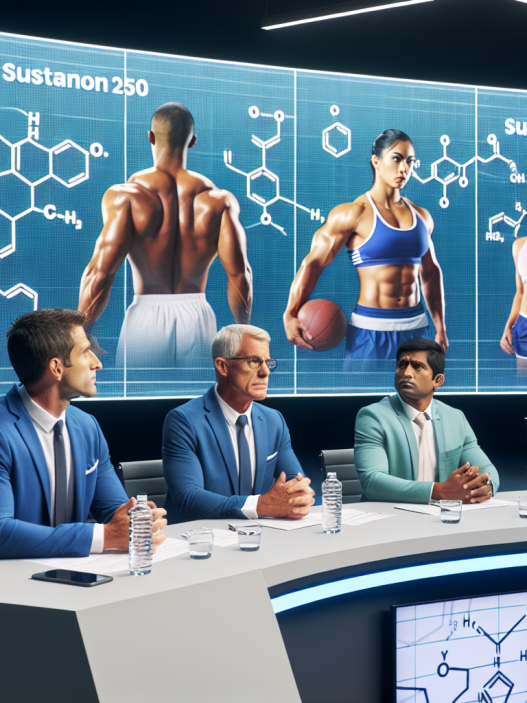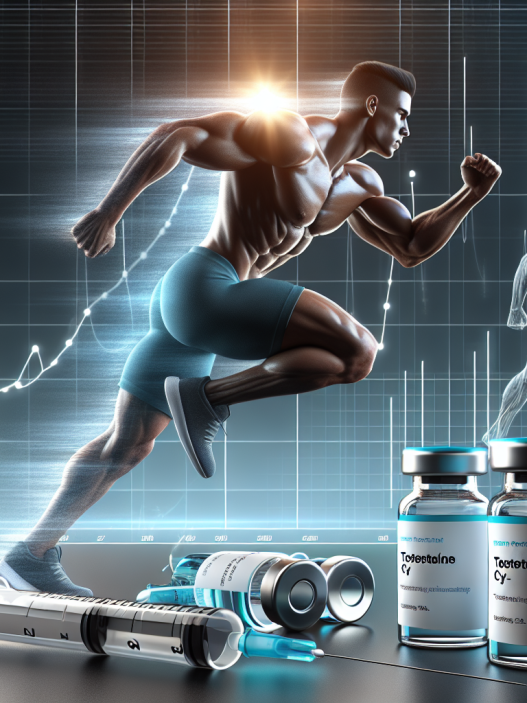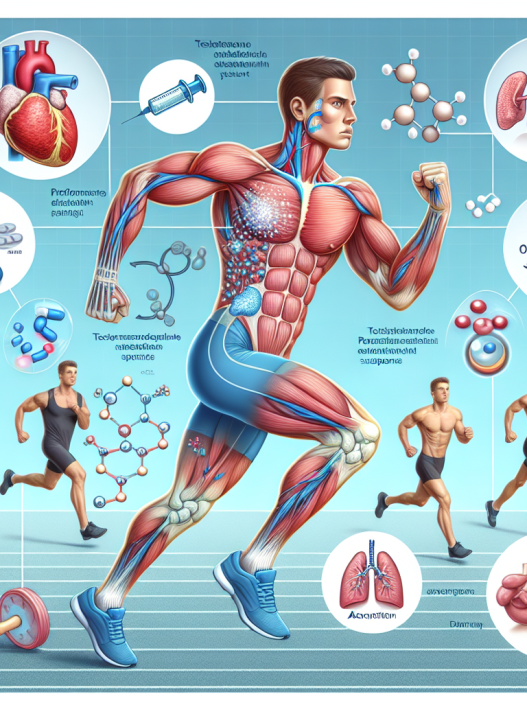-
Table of Contents
Testosterone and Athletic Performance: Myth or Reality?
Testosterone is a hormone that is often associated with athletic performance and muscle growth. It is commonly believed that higher levels of testosterone can lead to increased strength, speed, and overall athletic ability. However, there is much debate surrounding the role of testosterone in athletic performance and whether or not it truly has a significant impact. In this article, we will explore the science behind testosterone and its effects on athletic performance, separating fact from fiction.
The Role of Testosterone in the Body
Testosterone is a hormone that is primarily produced in the testes in males and in smaller amounts in the ovaries in females. It plays a crucial role in the development of male reproductive tissues and secondary sexual characteristics, such as increased muscle mass and body hair. Testosterone also has important functions in the body, including regulating bone density, red blood cell production, and mood.
Testosterone levels in the body are regulated by the hypothalamus and pituitary gland. The hypothalamus releases a hormone called gonadotropin-releasing hormone (GnRH), which stimulates the pituitary gland to release luteinizing hormone (LH) and follicle-stimulating hormone (FSH). LH then stimulates the testes to produce testosterone.
The Myth of Testosterone and Athletic Performance
There is a common belief that higher levels of testosterone can lead to increased athletic performance, particularly in terms of strength and muscle growth. This belief is often perpetuated by the media and popular culture, with images of muscular, testosterone-fueled athletes dominating sports. However, the reality is not as simple as this myth suggests.
While it is true that testosterone plays a role in muscle growth and strength, it is not the only factor. Other hormones, such as growth hormone and insulin-like growth factor 1 (IGF-1), also play important roles in muscle development. Additionally, genetics, training, and nutrition all play significant roles in an athlete’s performance.
Furthermore, the idea that higher levels of testosterone automatically lead to better athletic performance is not supported by scientific evidence. In fact, studies have shown that testosterone levels do not necessarily correlate with athletic ability. For example, a study published in the Journal of Clinical Endocrinology and Metabolism found that testosterone levels were not significantly different between elite male athletes and non-athletes (Handelsman et al. 2015).
The Reality of Testosterone and Athletic Performance
While the myth of testosterone and athletic performance may not hold up, there is evidence to suggest that testosterone can have some impact on certain aspects of athletic performance. For example, a study published in the Journal of Applied Physiology found that testosterone supplementation in men increased muscle mass and strength (Bhasin et al. 1996). However, this effect was only seen in men who were already engaging in resistance training. In other words, testosterone supplementation alone did not lead to increased muscle mass and strength.
Another study published in the Journal of Clinical Endocrinology and Metabolism found that testosterone supplementation in older men improved muscle strength and physical function (Snyder et al. 2016). This suggests that testosterone may have a greater impact on athletic performance in older individuals who may have lower levels of testosterone due to aging.
It is also important to note that testosterone supplementation is not without risks. Excessive levels of testosterone in the body can lead to negative side effects, such as increased aggression, acne, and even heart problems. This is why it is crucial for athletes to consult with a healthcare professional before considering testosterone supplementation.
The Controversy Surrounding Testosterone in Sports
One of the reasons why the role of testosterone in athletic performance is so heavily debated is because of its use in sports. Testosterone is considered a performance-enhancing drug and is banned by most sports organizations. However, there is controversy surrounding the use of testosterone in sports, particularly in the case of transgender athletes.
Transgender athletes who were assigned male at birth but identify as female may have higher levels of testosterone due to their biology. This has led to debates about whether or not these athletes should be allowed to compete in women’s sports. Some argue that higher levels of testosterone give these athletes an unfair advantage, while others argue that it is discriminatory to prevent them from competing based on their hormone levels.
The Bottom Line
So, is testosterone a myth or a reality when it comes to athletic performance? The answer is not black and white. While testosterone does play a role in muscle growth and strength, it is not the sole determinant of athletic ability. Other factors, such as genetics, training, and nutrition, also play important roles. Furthermore, the use of testosterone as a performance-enhancing drug is controversial and should be approached with caution.
As with any substance, it is important to consult with a healthcare professional before considering testosterone supplementation. Athletes should also be aware of the potential risks and side effects associated with excessive levels of testosterone in the body. Ultimately, the role of testosterone in athletic performance is complex and requires further research to fully understand its impact.
References
Bhasin, S., Storer, T.W., Berman, N., Callegari, C., Clevenger, B., Phillips, J., Bunnell, T.J., Tricker, R., Shirazi, A., and Casaburi, R. (1996). The effects of supraphysiologic doses of testosterone on muscle size and strength in normal men. Journal of Applied Physiology, 81(4), 1665-1674.
Handelsman, D.J., Hirschberg, A.L., and Bermon, S. (2015). Circulating testosterone as the hormonal basis of sex differences in athletic performance. Endocrine Reviews, 36(5), 824-840.
Snyder, P.J., Bhasin, S., Cunningham, G.R., Matsumoto, A.M., Stephens-Shields, A.J., Cauley, J.A., Gill, T.M., Barrett-Connor, E., Swerdloff, R.S., Wang, C., Ensrud, K.E., Lewis, C.E., Farrar, J.T., and Cella, D. (2016). Effects of testosterone treatment in older men. The New England Journal of Medicine, 374(7), 611-624.
<img src="https://images.unsplash.com/photo-1556740749-887f6717d7e1?ixid=MnwxMjA3fDB8MHxzZWFyY2h8Mnx8dGVzdGVyb25seSUyMHRlc3Rlcm9ubHl8ZW58MHx8MHx8&ixlib=rb-1.2.1&auto=format&fit=crop&w=1350&q=
